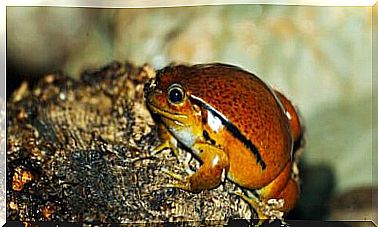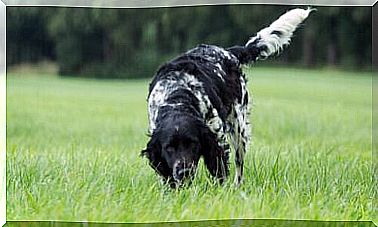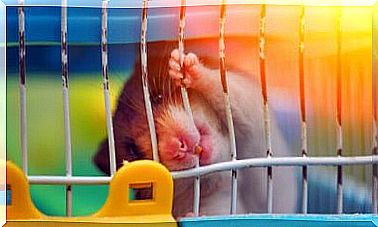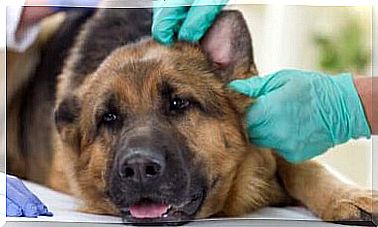Tips For Treating Nervous Dogs
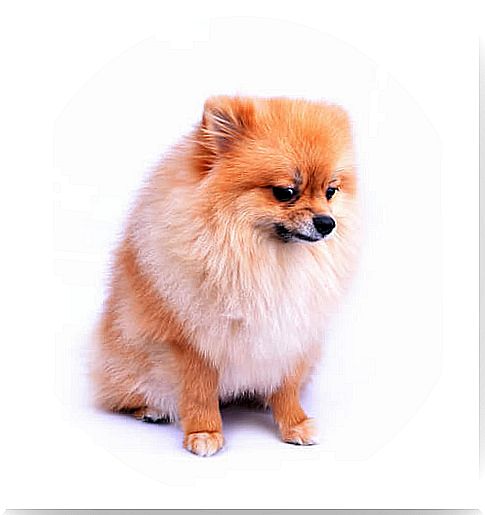
Dogs have very defined personalities and react in different ways depending on the situation they face. However, if your pet is excessively nervous, this could be a behavioral problem. Nervousness usually stems from stress problems and this can considerably affect your friend’s health, so we’ll give you some tips for treating nervous dogs.
While most cases of nervousness in dogs are due to stress, you must identify what is causing it. Stress can be caused by a health problem, pain, inappropriate environmental conditions (for example, a place where there is a lot of noise), bad education processes or by the reinforcement of the dog’s nervous behavior by the owners.
Once you’ve identified the reason for your dog’s nervousness, you can treat it.
Improve environmental conditions
Many of the problems associated with stress in nervous dogs are related to the environment in which these dogs live. Improving aspects such as space, cleanliness, noise, will help your pet to be more relaxed at home.
Try to make your furry friend live as comfortable as possible, have established schedules and perform some procedure that helps the dog adapt to spending time alone in the house, without this causing him anxiety.
Part of providing a healthy environment for your dog is providing a calm state of mind through your attitudes.
It’s not that dogs have a sixth sense, it’s that they connect with the emotions of humans and will respond accordingly; if you are serene, the dog will respond to it in the same way. Remember that physical punishment or screaming are ways to further aggravate nervous problems in animals.
exercise is vital
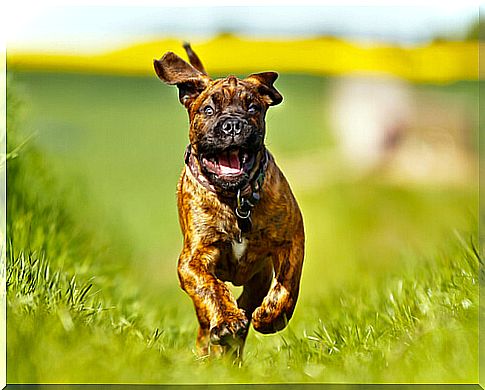
Something that further worsens the behavior of nervous dogs is not wasting the large amount of energy they have. Exercising will keep him relaxed, plus the fact that it will prevent a lot of health problems.
Try to take longer walks, preferably in a space where he can run and be in contact with other animals. Or that he gets used to being in contact with other people and animals, which will help him maintain a calm state of mind.
Keep in mind that your dog needs to have time for play, so take the time to play with your pet, throw the ball or jump. Pranks like these increase the dog’s anxiety level, which allows him a greater opportunity to expend his energy.
caresses are important
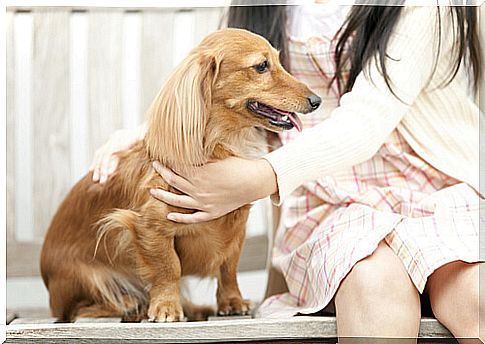
Physical contact is very important for creating a bond between the dog and its owner. The caresses are also very productive for the moment to calm your pet, if they are done in a leisurely way.
Stroking the loin, ribs, neck will help you reduce your pet’s stress levels. When he’s nervous, it’s good for him to feel a comforting hand, and this will increase the level of confidence your dog has in you.
Reward your good behavior
One thing that helps reduce anxiety and nervousness is rewarding the dog when he behaves well. With this you reinforce the positive behaviors of your pet, which will be very positive to help you understand what attitudes and behaviors he should have.
Do not reinforce negative behaviors
Involuntarily, we tend to reinforce negative behaviors in our animals. For example, if you feed him when he is excited or when he greets you effusively when you get home, what you do is reward your dog for being in an inappropriate state of mind. Therefore, the dog will understand that this state of mind is valid.
Do not medicate your pet
On the internet you can find a lot of recommendations on what medications to give a nervous dog. Remember that, for no reason, you will be able to give medication to your pet without being prescribed by a veterinarian.
These include things that might seem harmless, like valerian or chamomile, to foods and medications that can turn out to be very harmful to dogs.
